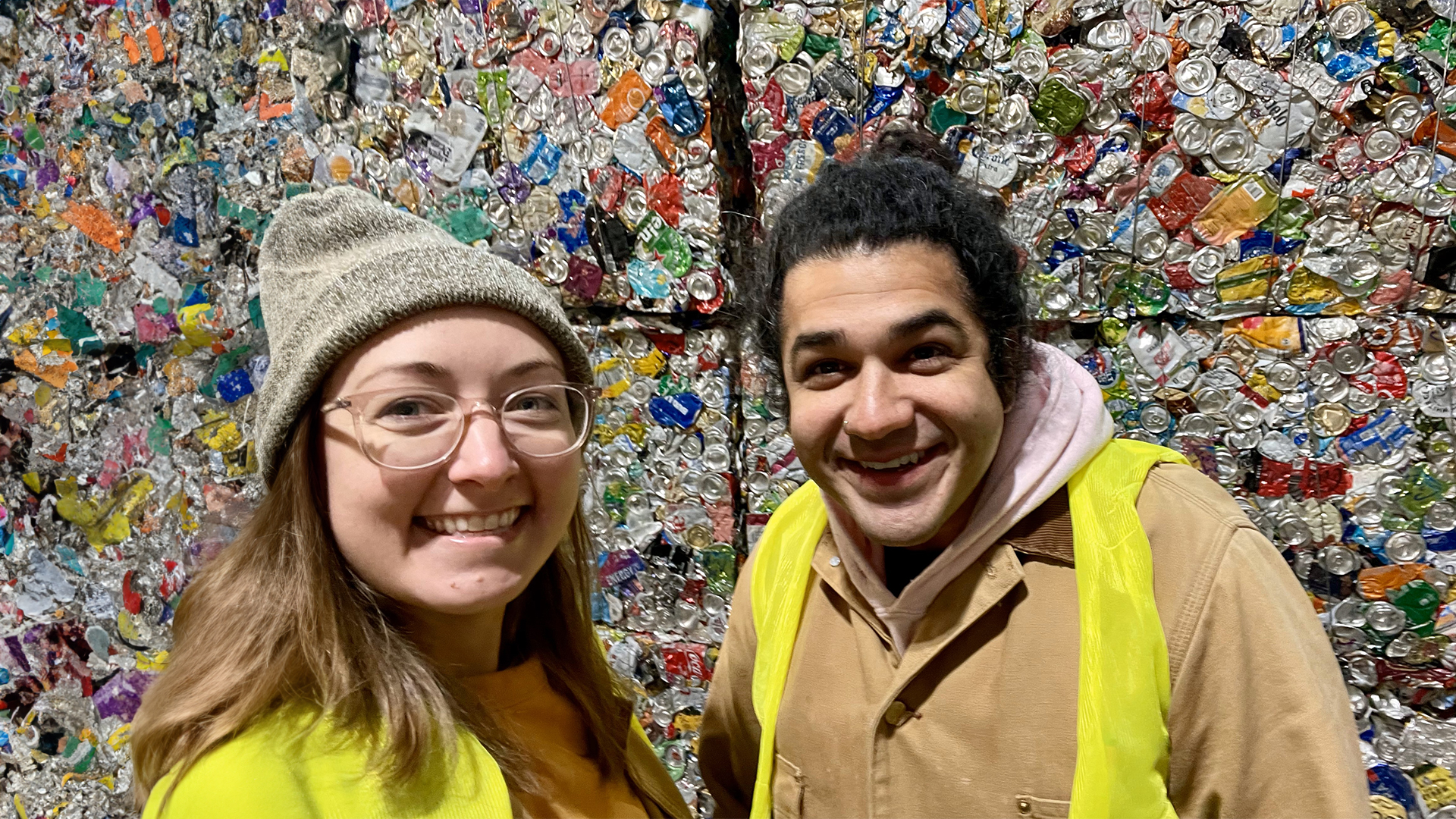
By Liz Ratzloff, LNS Co-Executive Director
Recycling is not broken, but it is not in itself the full solution.
Those of us in the fight for climate justice have long heard that recycling is broken. “Most recycling ends up at the landfill.” “Recycling uses more energy than it saves.” “If you put one contaminant in the recycling, the whole load will go to the landfill.” I’ve repeated these sentiments without really knowing where I got them from. So recently I toured my local recycling center, Recycle Ann Arbor (RAA), which serves Washtenaw County, Michigan to figure out how recycling in my community actually works. Throughout the tour, workers emphasized two points. First, recycling is not broken. Second, recycling is not the solution.
RAA is a non-profit and was founded in 1977 as a program of the Ecology Center. After starting one of the nation’s first curbside recycling programs, RAA has expanded to operate one of the state’s largest community drop-off stations, reuse center, curbside recycling program, and construction and demolition material recovery yard.
Within the first two minutes of the tour, the tour guide proudly stated that RAA workers are unionized and warned against the risk of greenwashing in the packaging sector. RAA makes recycling work by striving for zero waste and building a more circular economy, which includes economic, social, and environmental bottom lines. Workers sort piles of recyclables and then ship materials locally (within 20 miles) to companies that will better recover and remanufacture materials into new products. When asked about how well community members comply with their recycling guidelines, the tour guides were clear about the problems: industry is responsible for filling recycling centers with plastics. Industry blames the recycling system and consumers for plastic pollution, but the real problem is that industry is making too much plastic, most of which cannot be recycled.
RAA co-founded the Alliance of Mission-Based Recyclers (AMBR) to guide future recycling policies and build credible, transparent systems. AMBR works towards this by advocating for the elimination of unnecessary plastics, expanding bottle deposit programs, and policies that put the responsibility on the producers.
Read more about AMBR’s work here.